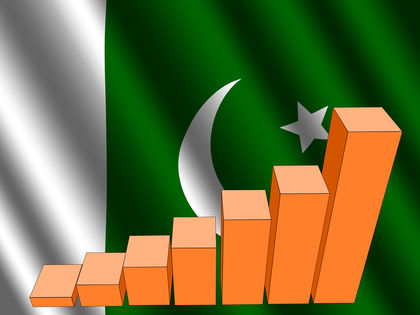The imposition of US tariffs on China, Mexico, and Canada is expected to be favorable for Pakistan, given its import-driven economic structure, according to a report by AKD Securities.
The brokerage firm believes Pakistan stands to gain from lower commodity prices, particularly oil, as the US dollar strengthens and interest rates remain high.
“We believe the imposition of tariffs by the USA on Mexico, Canada, and China is positive for Pakistan, given its import-led position. We expect these measures to lower the outlook for commodity prices due to a stronger dollar and higher interest rates for a longer period in the USA, amid a weaker global economic growth outlook,” AKD Securities wrote in its latest Pakistan Strategy note.
On February 1, US President Donald Trump signed executive orders imposing 25% tariffs on Mexico and Canada, with a partial exemption for Canadian energy and oil exports, and a 10% tariff on China. He said these tariffs would remain in place until the countries took steps to curb the flow of migrants and drugs, particularly fentanyl, into the US.
On Monday, Mexico and Canada reached last-minute agreements to halt impending US tariffs. Mexican President Claudia Sheinbaum pledged to deploy 10,000 National Guard officers to curb drug trafficking and migration after talks with Trump. Similarly, Canadian Prime Minister Justin Trudeau, following two calls with Trump, secured a 30-day tariff pause by agreeing to bolster border enforcement against drug smuggling and undocumented migration.
These trade shifts are likely to reduce global commodity prices, which could benefit Pakistan by lowering its import costs and supporting export-driven industries like textiles and technology.
“The USA remained the largest trade destination for Pakistani exports, accounting for 19% of the country’s exports in 1HFY25. We do not foresee any direct imposition of tariffs on Pakistan’s goods, given their small proportion in the context of US imports (0.1%) and their basic nature,” read the brokerage note.
While the US aid freeze raised concerns, the report suggests minimal financial impact on Pakistan. The government budgeted only $21 million in grants from USAID for FY25 against the overall external financing requirement of $26 billion, while no bilateral loans are projected.
However, any potential imposition of tariffs on remittances from the USA would be modestly negative for Pakistan’s external account.
The brokerage firm also expects Pakistan’s currency to remain stable, backed by higher foreign inflows, improving remittance flows, and a reduced import bill. With external financing needs estimated at $25.4 billion, Pakistan is looking at $7.5 billion in grants and concessional loans from multilateral lenders to meet its obligations.
The report highlighted that Pakistan’s stock market has already begun reflecting improved macroeconomic indicators despite initial concerns over the US aid freeze and trade measures. Falling interest rates and a stable exchange rate are expected to further strengthen equities, with analysts anticipating a 250 basis points cut in SBP’s interest rates during calendar year 2025.
Given these economic factors, AKD Securities has taken an overweight stance on banking, energy, fertilizer, cement, oil marketing, autos, textile, and technology stocks. It expects these sectors to benefit from monetary easing, stable exchange rates, and declining global commodity prices. However, it maintains a market-weight stance on the power sector and an underweight position in chemicals.




